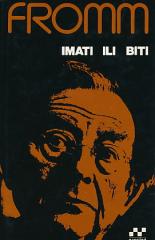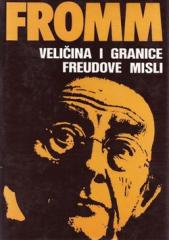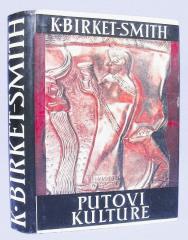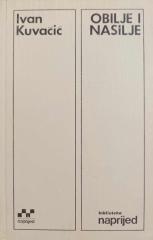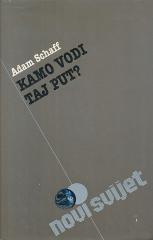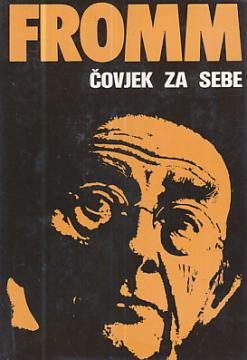
Čovjek za sebe - Istraživanje o psihologiji etike
In the book "Man for Himself", Erich Fromm develops the idea of humanistic ethics as opposed to authoritarian and relativist ethics.
Approaching the problem through a combination of psychoanalysis, philosophy and sociology, Fromm argues that morality should not be based on external authorities (God, society, tradition), but on the inner nature of man. Ethics does not arise from orders, but from man's aspiration to become a fully developed, authentic human being.
According to Fromm, man is neither good nor evil by nature, but a potential that develops depending on social conditions. In a healthy society, ethical behavior arises from love, reason and a productive orientation - the ability to love, create and act in harmony with oneself and others. In contrast, in repressive or alienated societies, people often develop destructive and unethical patterns of behavior.
Fromm particularly criticizes the authoritarian conscience - a sense of guilt based on the fear of punishment - and advocates the development of a humanistic conscience, which arises from the awareness of one's own growth and acting in accordance with inner truth. Ethics, according to him, is a necessary part of spiritual and emotional health.
In conclusion, "Man for Himself" calls for the creation of a society that supports individual freedom, love, and responsibility as the foundations of true ethics.
A copy is available as part of the book set "Erich Fromm: Djela 1-12"
Browse the set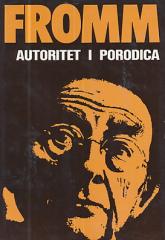
1. Autoritet i porodica
In his work "Authority and Family", Erich Fromm analyzes the transformation of authority and family in modern society. The foreword was written by Gvozden Flego, and the book also contains the study "Revolutionary Character".
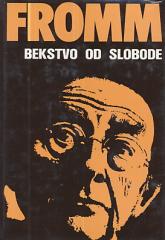
2. Bekstvo od slobode
In the work "Escape from Freedom" (1941), Erich Fromm analyzes the psychological and social effects of the modern concept of freedom.
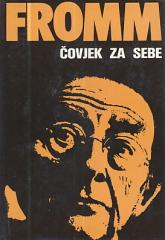
3. Čovjek za sebe - Istraživanje o psihologiji etike
In the book "Man for Himself", Erich Fromm develops the idea of humanistic ethics as opposed to authoritarian and relativist ethics.
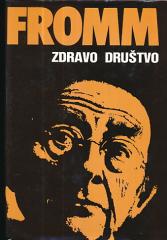
4. Zdravo društvo
In his book "The Healthy Society," Erich Fromm explores what makes a society psychologically healthy and what makes it unhealthy. The book represents the crowning achievement of Fromm's social and political philosophy, in which he favors a so-called human
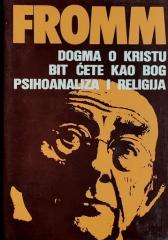
5. Dogma o Kristu / Bit ćete kao Bog / Psihoanaliza i religija
In these works, Fromm explores religion as a psychological and social phenomenon. He criticizes authoritarian religions and advocates a humanistic approach to faith that encourages freedom, growth, and inner responsibility.
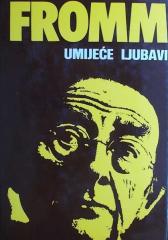
6. Umijeće ljubavi
In "The Art of Loving," Fromm argues that love is an art that requires knowledge, effort, and practice, not just an emotion or a random occurrence. In modern society, people often understand love as an object to be "found," rather than as a skill to be de
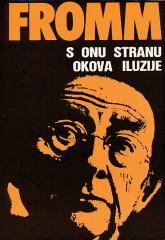
7. S onu stranu okova iluzije: Moj susret s Marxom i Freudom
In the autobiographical-philosophical work "Beyond the Chains of Illusion", Erich Fromm depicts his own intellectual development through his encounter with the ideas of Karl Marx and Sigmund Freud.
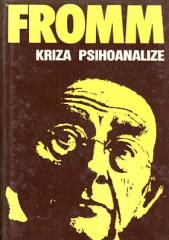
8. Kriza psihoanalize - Analitička socijalna psihologija i društvena teorija
In the book, Fromm presents a strong critique of contemporary psychoanalysis. He believes that psychoanalysis has moved away from Freud's initial revolutionary vision and has turned into a technical, often sterile system that ignores deeper human and soci
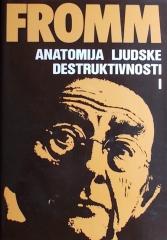
9. Anatomija ljudske destruktivnosti 1
In this classic study from 1973, Erich Fromm explores in depth the roots of human destructiveness. The book is not only a critique of violence, but a broad analysis of how biological, psychological and social factors shape our propensity for destruction.

10. Anatomija ljudske destruktivnosti 2
In this classic study from 1973, Erich Fromm explores in depth the roots of human destructiveness. The book is not only a critique of violence, but a broad analysis of how biological, psychological and social factors shape our propensity for destruction.
